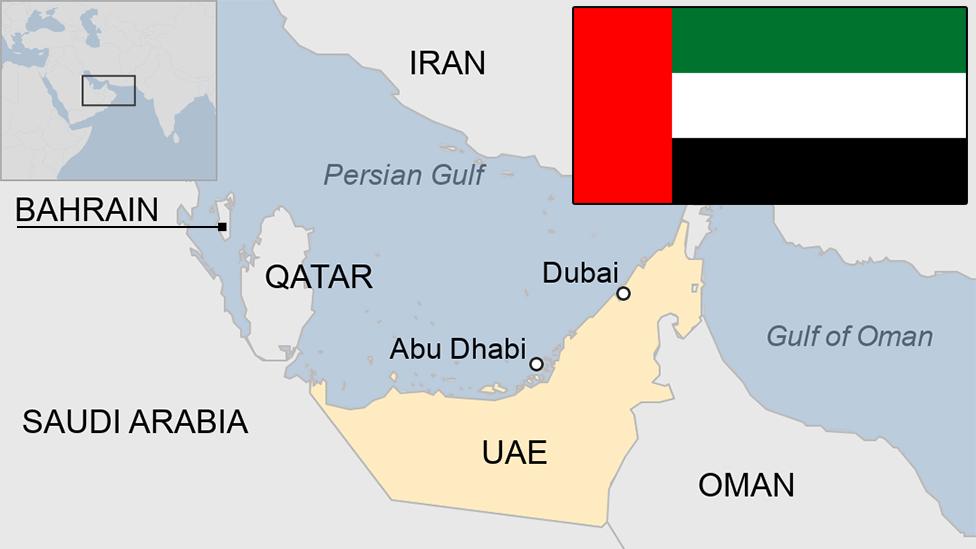Qatar country profile
- Published
This page is no longer being updated. It was last updated on 7 September 2023
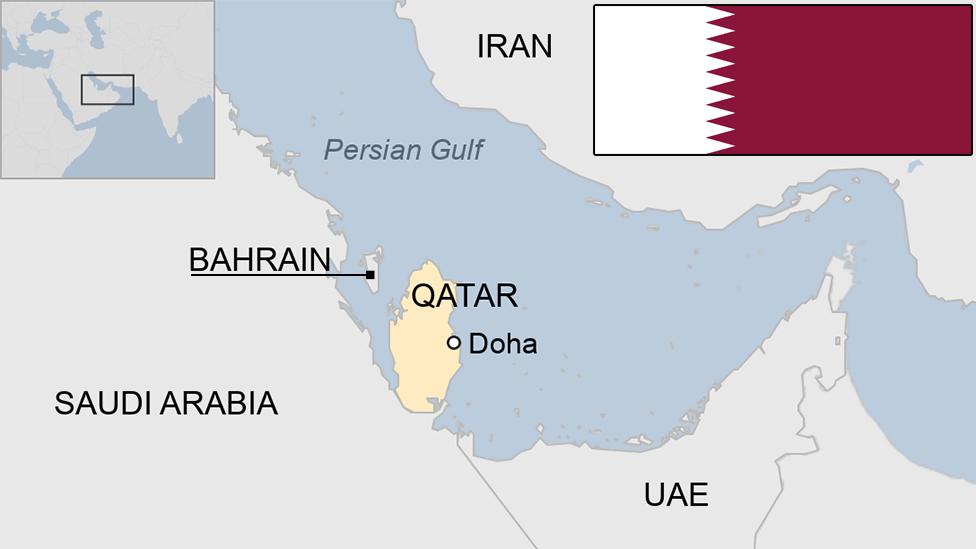
Qatar, once one of the poorest Gulf states, is one of the richest countries in the region today.
Qatar has used income from its large gas reserves to bankroll its regional and global ambitions, including hosting the 2022 Fifa World Cup tournament - the first Arab and Muslim-majority country to do so.
Not all of its regional interventions are popular with other Arab leaders, such as its support for the Palestinian Hamas faction in Gaza and Islamist groups in Egypt and Syria.
In 2017 Saudi Arabia led efforts to cut the country off, ostensibly to force it to abandon its support for radical and Islamist groups. Qatar says any ties with such groups are part of an independent policy of relations with regional actors and strongly denies supporting terrorism.
It also faces problems at home. Oil money funds an all-embracing welfare state, with many services free or heavily subsidised, but the treatment of migrant workers is frequently criticized by rights groups.
Read more country profiles, external - Profiles by BBC Monitoring, external
STATE OF QATAR: FACTS
Capital: Doha
Area: 11,581 sq km
Population: 2.7 million
Language: Arabic
Life expectancy: 79 years (men) 82 years (women)
LEADER
Emir: Sheikh Tamim bin Hamad al-Thani
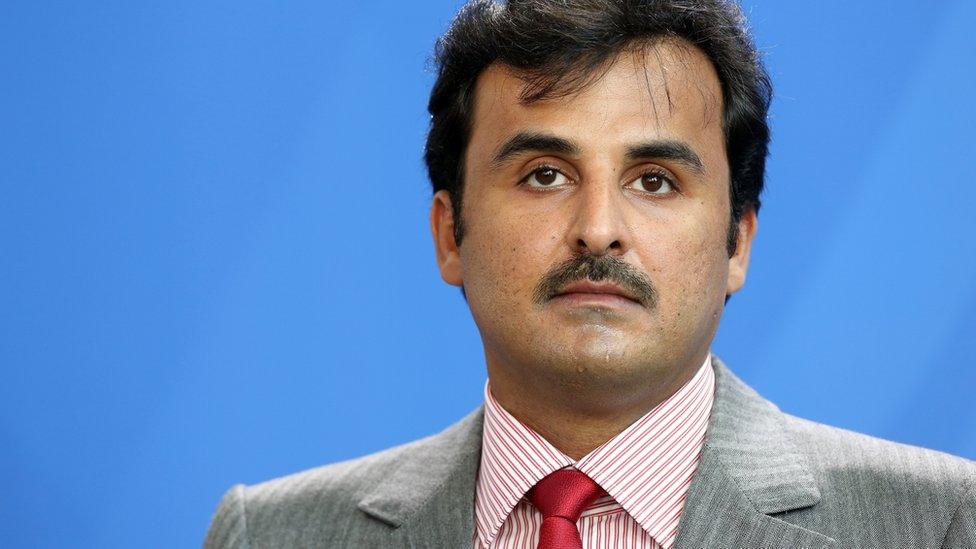
Sheikh Tamim bin Hamad al-Thani took over from his father in a peaceful transfer of power in June 2013.
Like his father, he was educated in Britain: he went to Sherborne school in Dorset and Sandhurst, the British military academy.
Sheikh Tamim has made diversifying the economy and investing in the national infrastructure a priority, but much of his tenure has been dominated by tension with Qatar's Gulf Arab neighbours ostensibly over the country's support for radical and Islamist groups, and its efforts to maintain good relations with Iran.
He has promoted sport as part of Qatar's bid to raise its international profile.
MEDIA
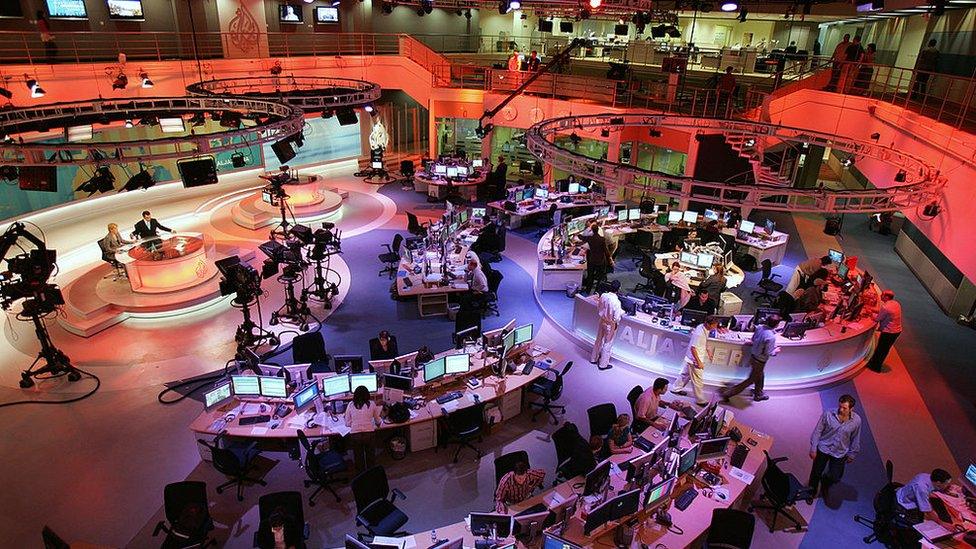
Al-Jazeera's newsroom in Doha
Influential pan-Arab and international TV broadcaster Al-Jazeera, which is owned by the government, has raised Qatar's media profile.
Qatar invests heavily in its media sector, especially Al Jazeera, which is seen as a tool of regional influence.
But Al-Jazeera and the domestic media avoid criticism of the state and government.
TIMELINE
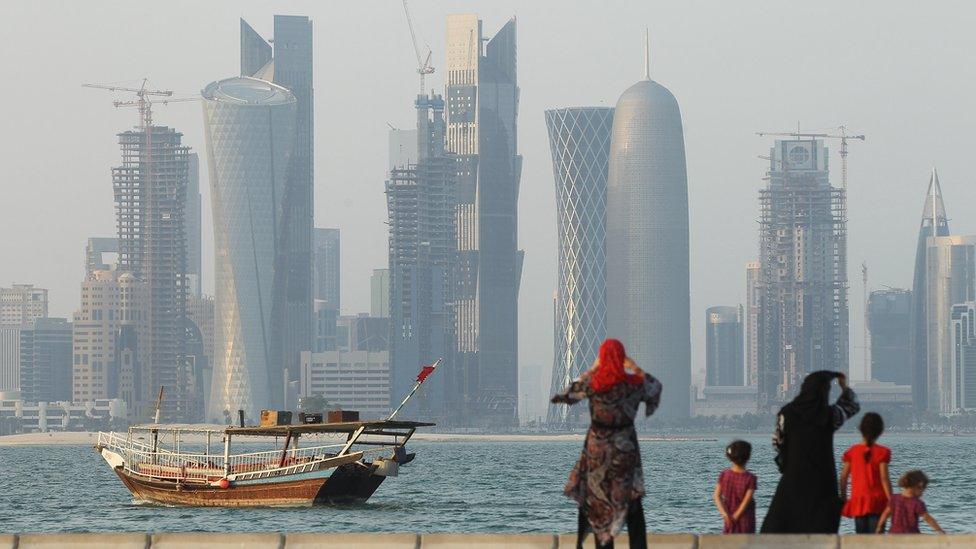
More than 80% of Qataris live in Doha or its suburbs
Some key dates in Qatar's history:
1825 - Al-Thani dynasty establishes control over Qatar, which tries to establish independence from Bahraini suzerainty.
1871 - The Al-Thanis submit to Ottoman overlordship.
1913 - Ottomans agree to British request to withdraw their troops from Qatar.
1916 - Deal signed under which Britain controls Qatar's external affairs in return for guaranteeing its protection.
1939 - Oil reserves discovered. Exploitation is delayed by World War Two, but oil comes to replace pearling and fishing as Qatar's main source of revenue.
1950s - Oil revenues fund the expansion and modernisation of Qatar's infrastructure.
1971 - Qatar achieves full independence from Britain.
1972 - Khalifa bin Hamad Al Thani takes power in a palace coup after infighting in the ruling family.
1990 - After Iraq invades Kuwait, Qatar says it will allow foreign forces on its soil. Qatari troops later take part in the liberation of Kuwait.
1995 - Sheikh Khalifa deposed by his son, Hamad, in a bloodless coup.
1996 - Qatar sets up international Al-Jazeera TV, which changes the face of Arab broadcasting.
2003 - Qatar-based US Central Command forward base serves as the nerve centre in the US-led military campaign in Iraq.
2005 - First written constitution comes into effect, providing for some democratic reforms.
2017 - Diplomatic crisis as Saudi Arabia launches Arab transport blockade ostensibly in an attempt to get Qatar to cut its connections with radical and Islamist groups, and distance itself from Iran. The crisis ends in 2021 following a resolution between Saudi Arabia and Qatar
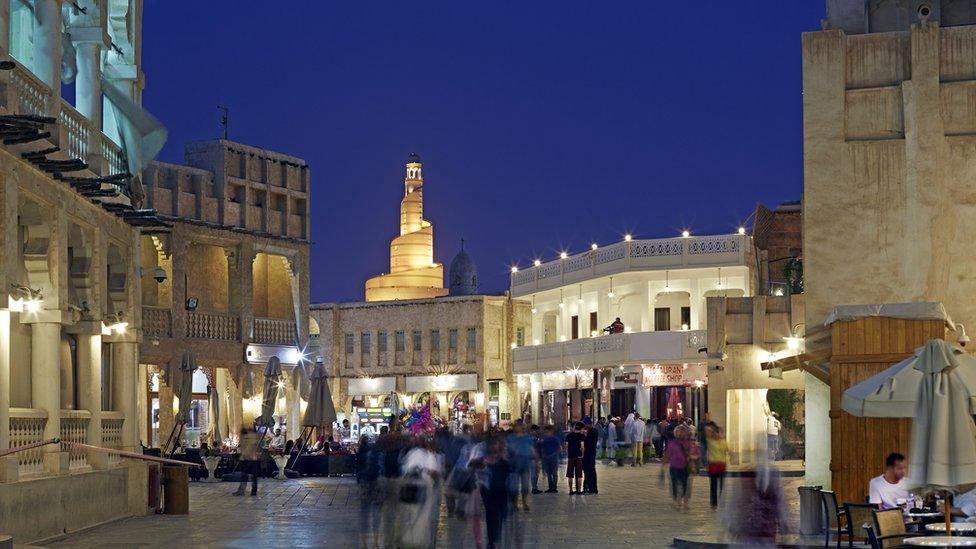
Doha officially became Qatar's capital on its independence in 1971
Related topics
- Published29 August 2023
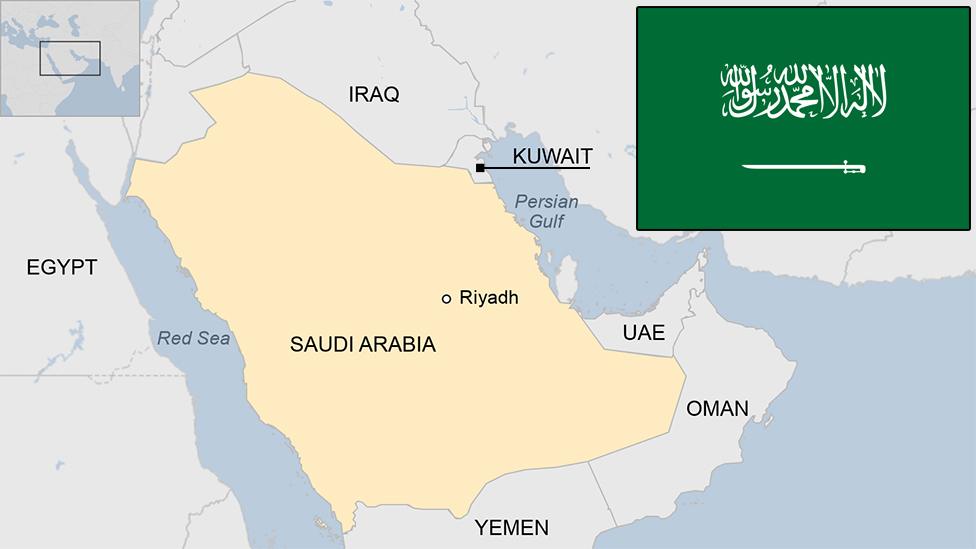
- Published21 August 2023
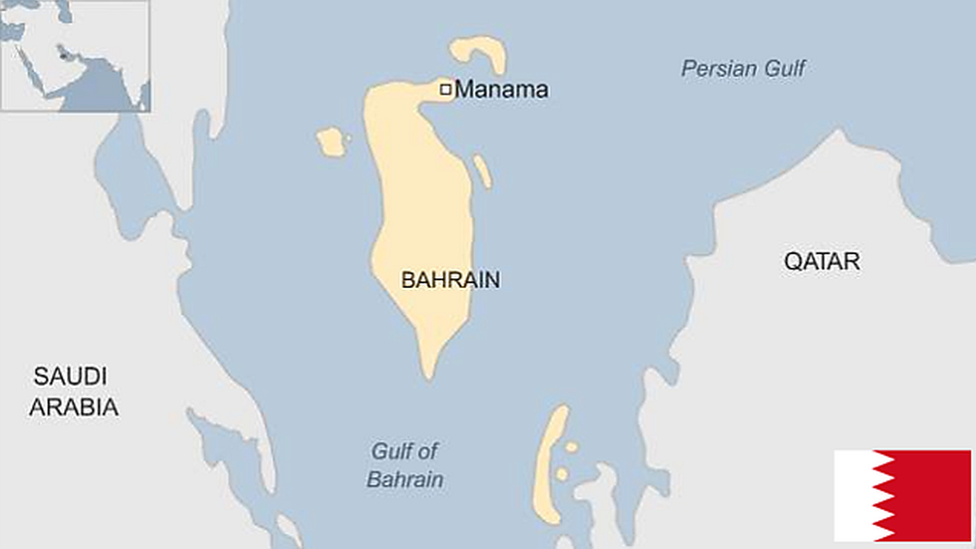
- Published18 December 2023
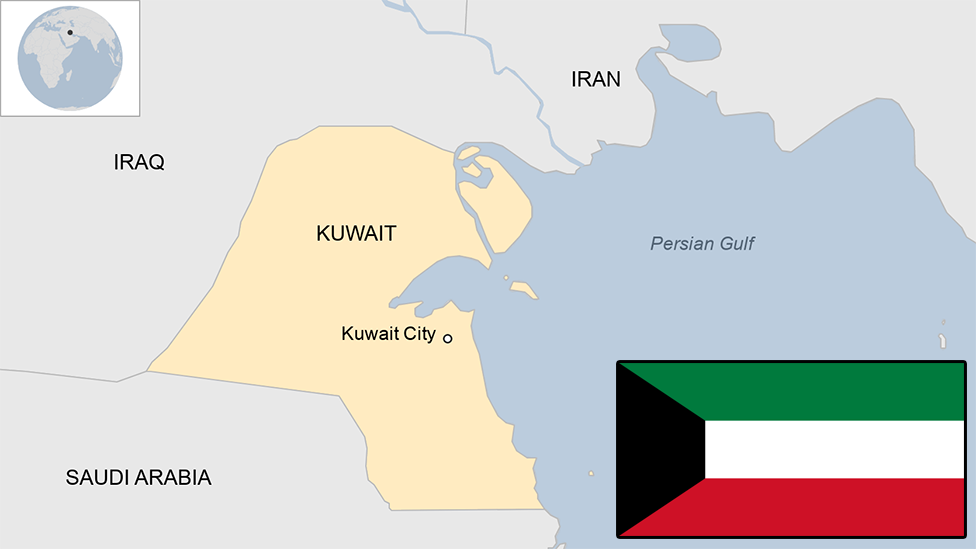
- Published14 October 2024

- Published7 September 2023
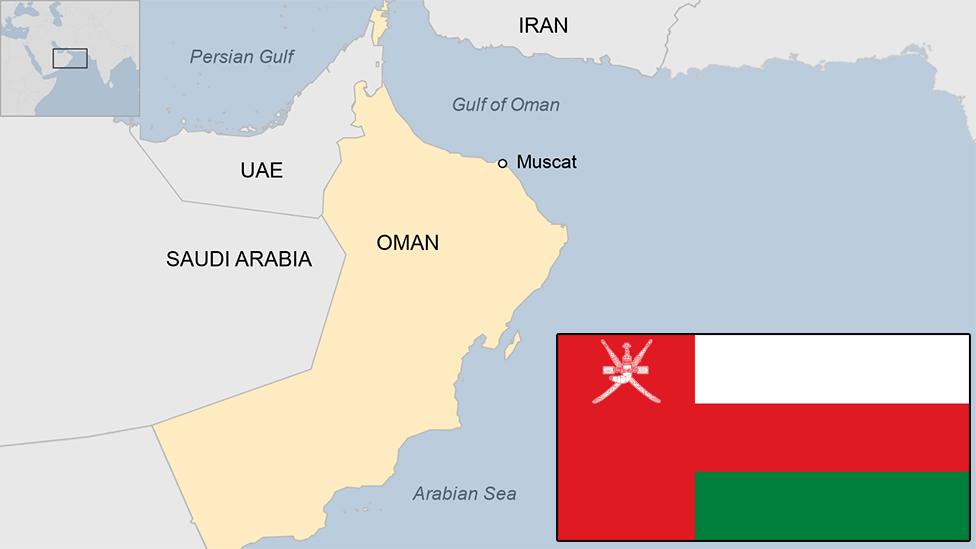
- Published7 September 2023
